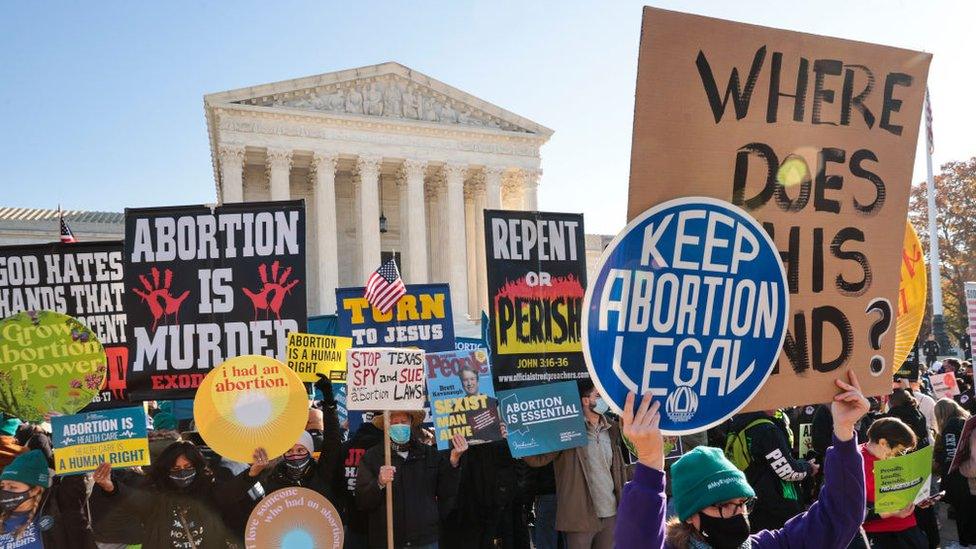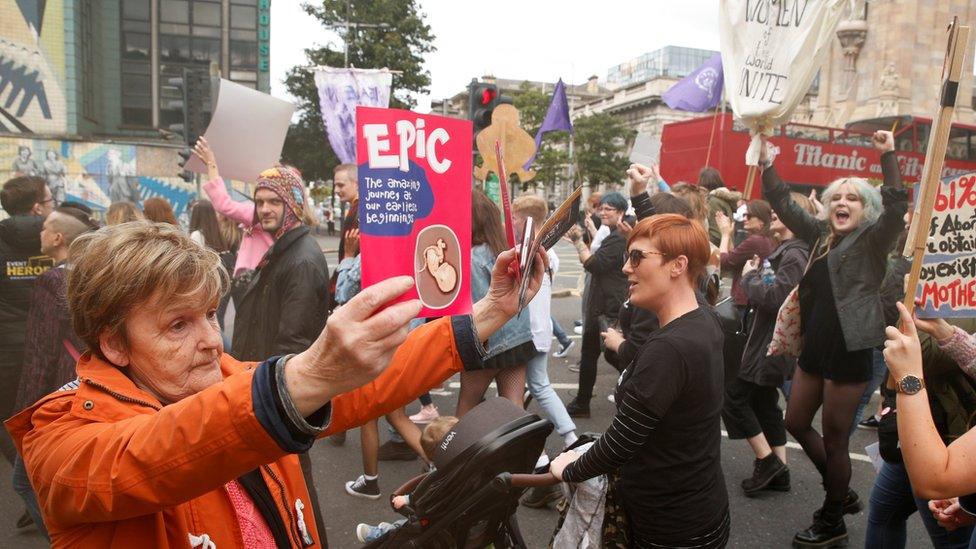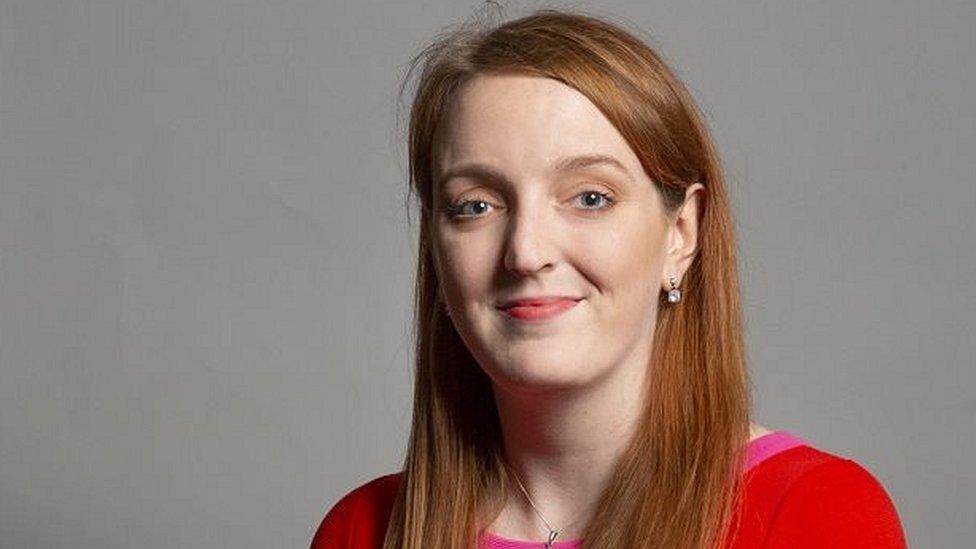No strong case for changing abortion rules, says Dominic Raab
- Published
Rosie Duffield calls for the government to enshrine in law "a woman's right to choose".
The right to abortions in the UK is "settled" and there is not a "strong case for change", Deputy Prime Minister Dominic Raab has said.
The comments follow a US decision overturning the right to abortion.
In the Commons, Labour MP Rosie Duffield asked if the government's Bill of Rights would be amended to "enshrine a woman's right to choose".
Mr Raab replied that abortion was an "issue of conscience" for MPs and that it was up to them to decide the law.
Last week, judges on the US Supreme Court ruled in favour of Mississippi's ban on abortions after 15 weeks.
Half of the country's states are now expected to introduce new restrictions or bans on the procedure.
Responding to the court's decision, Ms Duffield asked the deputy prime minister to send "a clear signal...that Britain respects the rights of women, and will he accept the cross-party amendment to his forthcoming Bill of Rights which enshrines a woman's right to choose in law?"
The government's Bill of Rights - which is currently going through Parliament - sets out a framework for human rights and ministers say it would strengthen freedom of speech and "restore common sense to our justice system".
Replying to the MP for Canterbury, Mr Raab said: "The position, as she knows, is settled in UK law in relation to abortion.
"It's decided by honourable members [MPs] across this House. It's an issue of conscience. I don't think there is a strong case for change.
"What I wouldn't want to do is find ourselves, with the greatest of respect, in the US position where this is being litigated through the courts rather than settled as it is now settled by honourable members in this House."
Responding to Mr Raab, Labour MP Stella Creasy - who introduced the amendment on abortion - tweeted:, external "Why is the Bill of Rights good enough to protect your freedom of speech but not your womb from being interfered with?"

The abortion debate has ignited passions in US politics
Abortion has been legal in Great Britain since 1967, when a new law allowed terminations up to 24 weeks in most circumstances - although this was not extended to Northern Ireland until 2020.
On Tuesday, Labour MP Dame Diana Johnson warned that the law change in the US had give American anti-abortion groups the "impetus" to try to reverse the 1967 Abortion Act in Britain.
She urged ministers to introduce more "buffer zones" around abortion clinics to prevent activists targeting patients and staff.
Shadow foreign minister Amanda Milling said she shared the view of Prime Minister Boris Johnson that the Supreme Court's judgement was "a big step backwards".
"The UK is proud to defend and promote universal and comprehensive sexual and reproductive health and rights, which is a fundamental to unlock the potential agency and freedom of women and girls," she said.
Ms Milling added that buffer zones were a "matter for the Home Office and is something that they keep under review".
The UK's first buffer zone was set up in the London borough of Ealing in 2018.
Since then two more have been created in England, but campaigners have called for more to be set up.
Speaking in the same debate, Conservative MP Danny Kruger said he would "probably disagree" with other MPs on the subject.
"They think that women have an absolute right to bodily autonomy in this matter, whereas I think in the case of abortion that right is qualified by the fact that another body is involved.
"I don't understand why we are lecturing the United States on a judgment to return the power of decision over this political question to the states, to democratic decision-makers, rather than leaving it in the hands of the courts," he added.
Related topics
- Published8 June 2022

- Published28 June 2022

- Published30 May 2022
